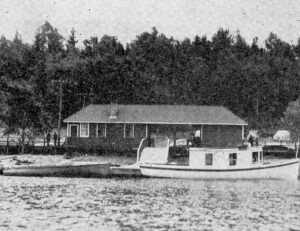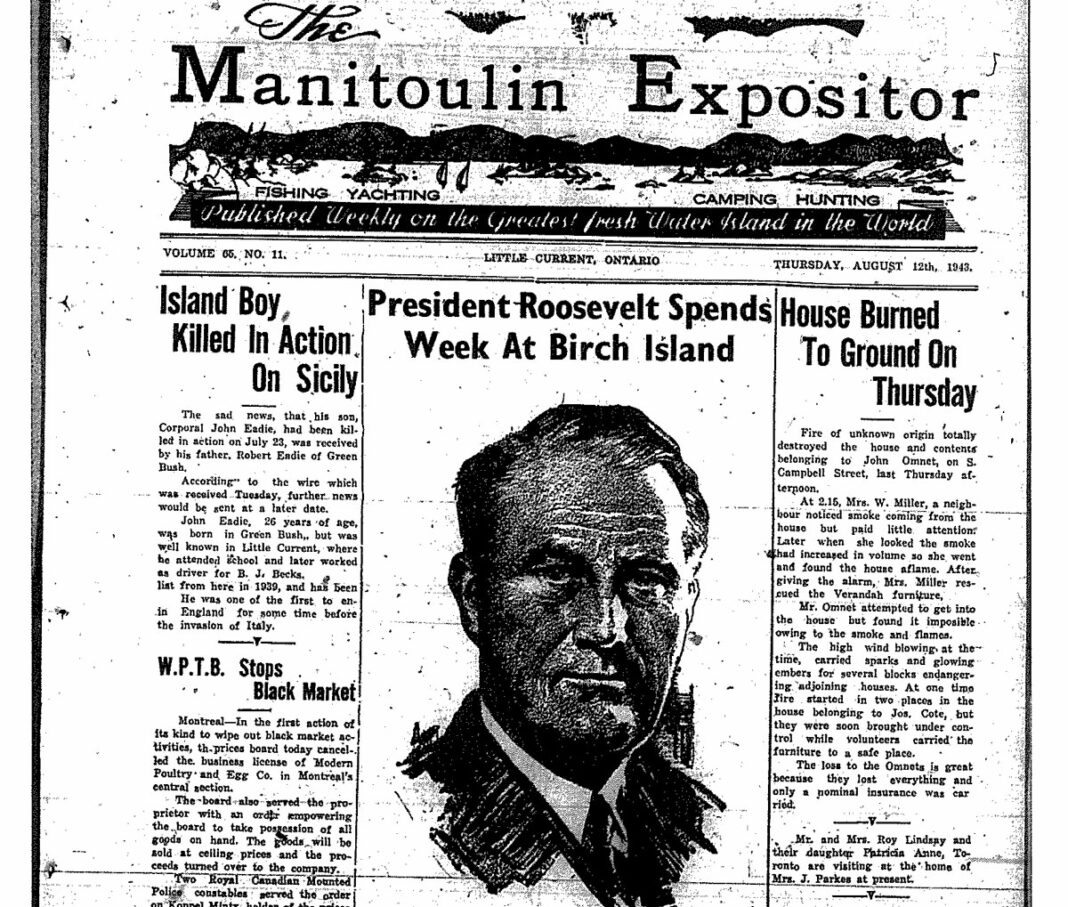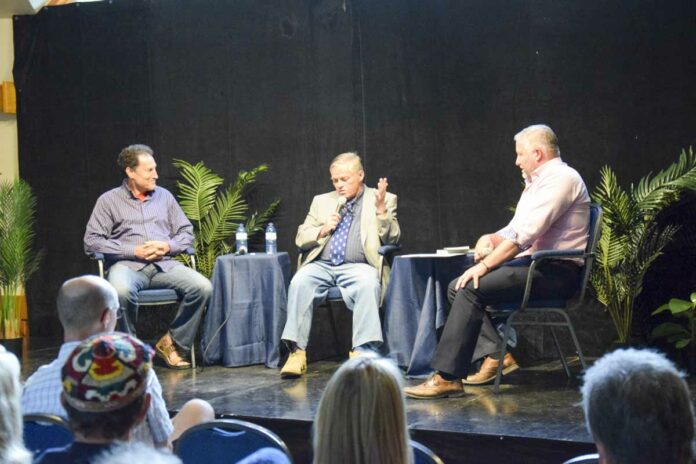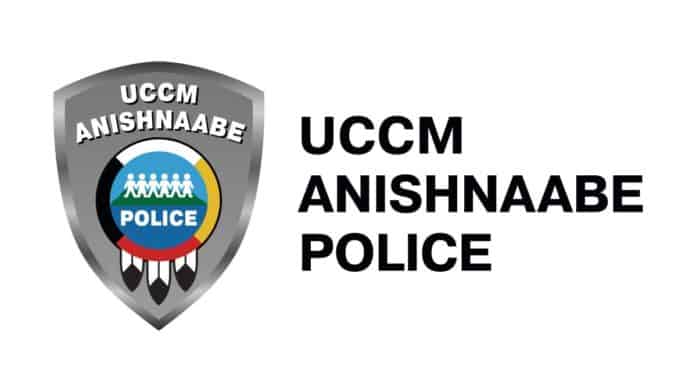EDITOR’S NOTE: The story below was written by US resident Philip Padgett, who wrote the book ‘Advocating OVERLORD: The D-Day Strategy and the Atomic Bomb in 2018.’ In the book it talks about a fishing trip President Roosevelt and others made to Birch Island 80 years ago this August 1-7. Mr. Padgett told The Expositor, “My book research found a lot of material on Franklin Delano Roosevelt’s (FDR) August 1943 trip to McGregor Bay (which the FDR library refers to as the “Birch Island Trip.”) What was new and significant in my research on the trip was establishing its content in what was happening in World War II and the Allies’ then highly uncertain decision on a strategy for victory. All the participants relished their escape and expressed warm memories of their time at Birch Island.”
“Underneath that, however, and overlooked by historians, is that Birch Island is where Roosevelt reached his personal commitment to the liberation strategy that would begin with D-Day, Operation Overlord. When they met in Hyde Park, New York, one week later, FDR’s attitude toward Winston Churchill was changed, and it never changed back.” Mr. Pagett generously penned this story for The Expositor, acknowledging the visit’s 80th anniversary.
Roosevelt Came to Fish, Made a Huge Decision
by Philip Padgett
BIRCH ISLAND—“Also, historical events took place that will perhaps go down in history as the most momentous occasion of this World War II. This, of course, I cannot discuss for some time to come.”
So wrote US Navy Lieutenant John Manley in a letter to his friend in the Pacific describing the young officer’s August 1943 week fishing the waters of McGregor Bay with U.S. President Franklin D. Roosevelt. Now 80 years later, we know that in his letter’s short paragraph, almost an aside, Manley was right.
FDR’s nine-car train with his private car, Ferdinand Magellan, arrived at Birch Island at 1 pm on Sunday, August 1, having left Washington in unusual secrecy. The Allies faced a critical decision, how to win World War II in Europe. On strategy for this, Britain and the United States fiercely disagreed: attack from the Mediterranean, as Winston Churchill urged, or across the English Channel, Operation Overlord, as Americans advocated? Imminent was a strategy conference in Quebec that both allies expected to be a showdown and to this, the fishing trip was not a coincidence.
The American Joint Chiefs and FDR’s closest advisers were not yet confident on where Roosevelt stood on strategy. Word had come that Churchill would arrive early, intent on meeting FDR alone before the conference. Alarmed, the Americans worried that a Churchill-FDR prior agreement on strategy would lock in both countries’ generals.
Quick action by the White House, helped by many Canadians and Americans, got the fishing trip organized in just eight days. Birch Island’s Canadian Pacific Station was chosen as perfect for fishing alternately McGregor Bay and the Bay of Islands. Local carpenters built a ramp to the dock for the wheelchair-bound FDR. The President’s calendar now filled with fishing, the possibility of another personal meeting with Churchill before FDR went to Quebec deftly had been delayed until August 12. Still, could Roosevelt be brought to a decision supporting Overlord?
There was a proven way to get FDR to a firm decision. Get Roosevelt away from White House distractions. Then, given him an on-point, well-written paper to read with Harry Hopkins on hand to discuss it. FDR would focus his fertile mind and embrace the idea as his own.
Knowing that U.S. Secretary of War Henry Stimson was flying home with a powerful case for Roosevelt to insist on Overlord as the Allies’ strategy, General George Marshall saw the fishing trip, 760 miles from the White House, as a perfect opportunity.
By Monday, Washington realized FDR had left the city. Ever wilder rumours swirled. Mystified though most of the world was as to FDR’s whereabouts, McGregor Bay residents knew. Their experience of the President’s visit was of security, circling planes, machine gun-armed guard boats and personal encounters with an affable FDR.
Per FDR’s practice on vacation, morning hours went into necessary governmental decisions, post-dinner discussion between FDR, Joint Chiefs chairman Admiral William Leahy and Harry Hopkins extended late into the night on war issues including the conference in Quebec. On that topic, the two competing strategy visions would come before Roosevelt again at Birch Island in unplanned collision.

As to fishing, Office of War Mobilization director James Byrnes said Roosevelt took that “so seriously that it was like working.” The fishing party split up between two boats, the Anna H, captained by Lieutenant Manley, and McDonald’s Mizpah. Of course, rivalry developed.
Leahy wrote in his journal that the party, “had a daily pool into which each of the seven or eight participants contributed one dollar to provide a prize to the individuals who brought in the largest, the longest, and the greatest number of fish … In the final settlement of our pool at the weekend only the President and I were winners … Mr. Harry Hopkins joined our party on August 4th and thereafter contributed his daily share to the winnings of those of us who were the most successful fishermen.”
Dusk meant cocktails aboard the Ferdinand Megellan. On their supposed location, there was “merry talk about the latest rumours.” Fresh fish dinners concluded well. Drawing from limitless wild blueberries and their finite wartime rations, local cottagers gifted the fishing party with homemade pies.
Allied strategy, however, was not to be put off. Thursday morning, August 5, a USAAF air courier, set down with the day’s dispatches from Washington. In the pouch was Henry Stimson’s compelling case for Overlord with a warning to also beware another Mediterranean diversion.
As Hopkins and Roosevelt were fishing and discussing Stimson’s memorandum, a new message arrived from Winston Churchill, a fresh appeal for the Mediterranean strategy. Soon came the third communication from an unexpected source in London. Churchill’s own foreign secretary, Anthony Eden, had contradicted Churchill’s facts. Compared side-by-side, the two messages from London left the Prime Minister’s case looking thin.
Each argument had a champion known and respected by Roosevelt. Which strategy would FDR support? Famous for keeping his own counsel, Roosevelt did so now.
In the days that followed, Roosevelt’s demeanor changed, at least in the opinion of his fishing guide, Donald Mckenzie. Of FDR, Mckenzie observed later in the Sudbury Daily-Star that on Friday and Saturday, 6-7 August, “He talked more freely, whereas the first part of the week he seemed quite preoccupied.” Asked, “Would you suggest that he had solved a problem that had been bothering him?” McKenzie answered, “Well he was very cheerful today when we were out fishing, and if he came here with a problem to solve, I would say that he made some headway on it.”
The fishing party departed Birch Island by train at 10 pm, Saturday, 7 August. Late on August 8, FDR sent Stimson a telegram that said only, “I hope you will lunch with me on Tuesday. Glad to have your memoranda.” Stimson and Marshall continued to wait in suspense.
Stimson arrived for the oval office lunch prepared to argue the case for Overlord. Instead, Roosevelt responded to each point, “I’ve already agreed to that.” When and where? At Birch Island. They moved to the next room where the president directed his commanders on what would become the Allies principal strategy for victory in Europe.
In the years that followed, the participants wrote of their time at Birch Island and the people they met there with great fondness. None had known that their fishing trip would be last time that, as a still reasonably healthy man, Franklin D. Roosevelt would escape the White House for fun.
The wreckage of a US military seaplane, whose duty it had been to delivery vital messages to and from President Roosevelt, can be seen at the Centennial Museum of Sheguiandah. The plane was scuttled at her dock when fire broke out.





